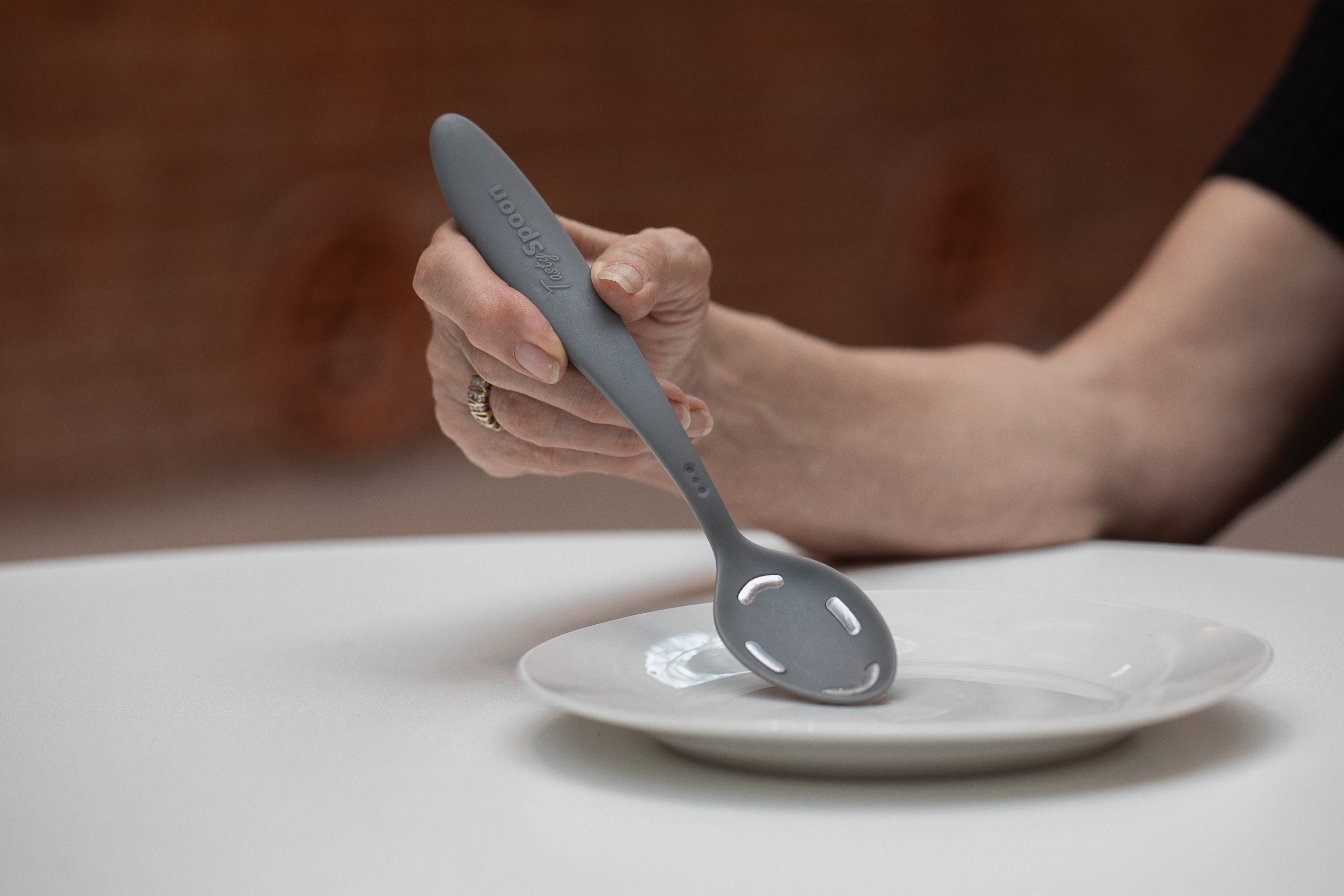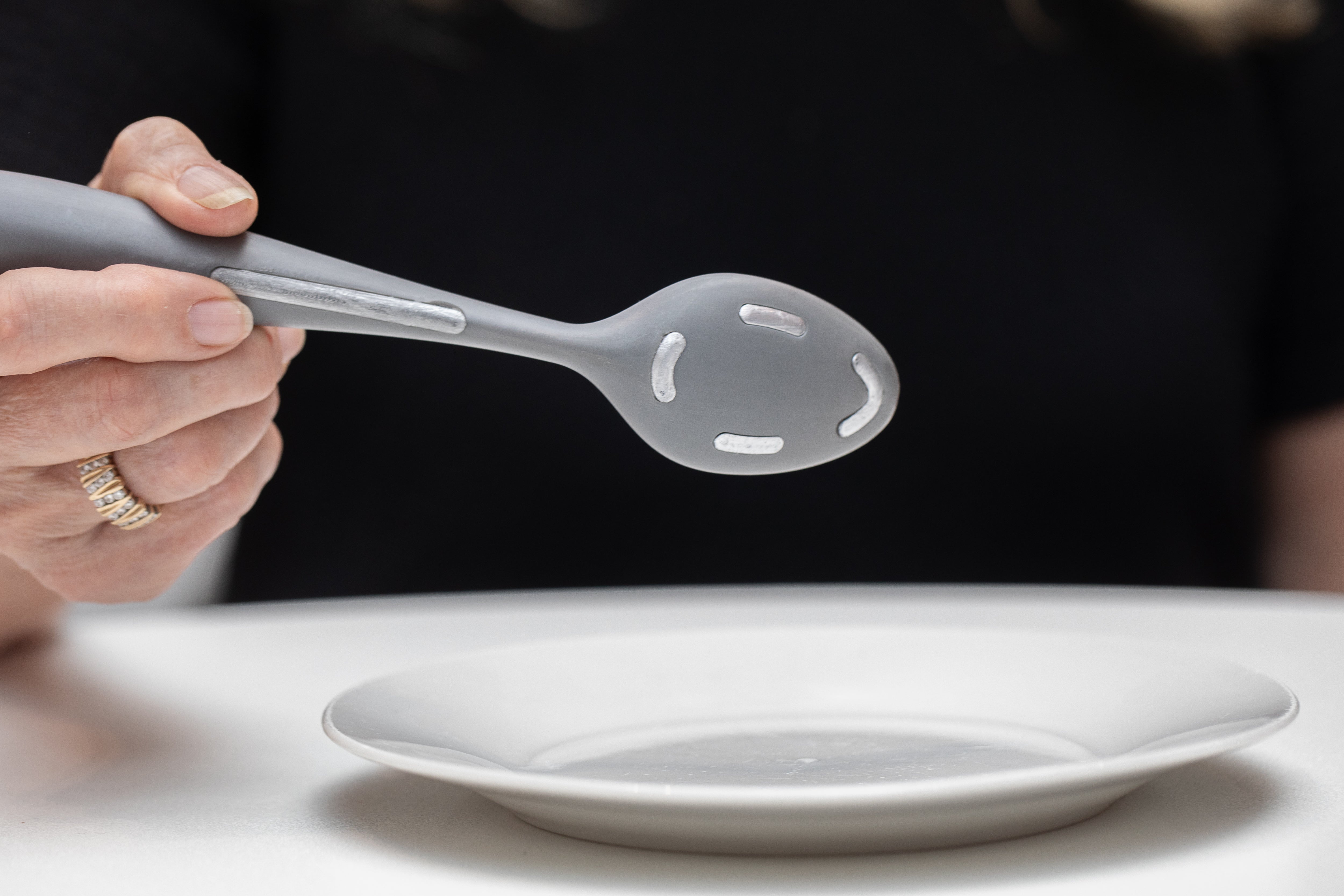Spoon designed to enrich lives of dementia patients
The Tasty Spoon uses electrostimulation to enhance the flavour of foods for patients experiencing a loss of taste

A high-tech device that looks like a normal spoon is being developed by researchers to help combat eating and drinking difficulties in people with dementia.
Known as Tasty Spoon, the device uses electrostimulation to enhance the flavour of foods for patients experiencing a loss of taste.
People with dementia often have issues with eating and drinking due to symptoms like memory loss, not being able to recognise food, and a decreased sense of smell and taste.
This can lead to patient’s losing weight and muscle strength.
The rechargeable Tasty Spoon looks like a traditional spoon but can help users differentiate between types of food, according to researchers.
Its development is being led by Dr Christian Morgner, of the University of Sheffield’s management school and Healthy Lifespan Institute.
He said: “A loss of taste can remove the enjoyment of food which impacts patient wellbeing as food plays such a significant role in our lives. This is especially prevalent in patients who live alone or in public care homes with more generalised nutrition.
“In a heartfelt disclosure, an individual shared that he only ate toast for the past five years, as to him there’s no difference between toast and a regular Sunday roast.”
Dr Morgner said the Tasty Spoon could also save the NHS money.

He added: “The development of a technological aid like the Tasty Spoon has the potential to rekindle the pleasure of eating for those facing taste-related challenges and therefore contribute to better health as well as mitigating the expense of treating the side effects of poor nutrition for the NHS.”
There are about 944,000 people in the UK with dementia, with one in 11 over the age of 65 suffering from the disease.
According to the NHS, the total could top one million people by 2030.
The Tasty Spoon project has partnered with Alzheimer’s Society’s Accelerator Programme, which is supporting bringing new products to market that help people living with dementia.
Simon Lord, head of innovation at Alzheimer’s Society, said: “A healthy, balanced diet can help improve a person’s quality of life.
“However, common symptoms of dementia, such as memory loss and difficulties with thinking and problem-solving, can make it more difficult to eat and drink well.
“That’s why we’re excited about the possibility Tasty Spoon presents in improving the taste and enjoyment of food and subsequently improving the health and nutrition of people living with dementia.
“Innovations like this are vital as they focus on enriching daily experiences and improving health and well-being.
“Tasty Spoon is a unique product, and we cannot wait to help get it into the hands of people living with dementia.”
Join our commenting forum
Join thought-provoking conversations, follow other Independent readers and see their replies
Comments
Bookmark popover
Removed from bookmarks